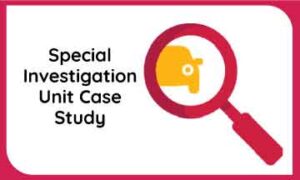Insurance fraud can be classified in two categories: hard fraud and soft fraud. Hard fraud involves deliberately causing damage to collect on an insurance policy. Soft fraud is more common and includes exaggeration of the severity or extent of damages to the claimant or vehicle to increase the insurance payment. Soft fraud also includes misrepresentation or intentional omission of information to obtain a lower insurance premium.
Recently, Maryland Auto Insurance investigated a suspicious claim in which a policyholder reported that all four wheels had been stolen from her vehicle.
The policyholder reported a theft claim one day after purchasing the coverage. In a phone report to police, it was stated that the wheels were stolen while the car was parked in Prince George’s County and that the vehicle was towed for repairs and replacement of the wheels and tires. Upon further investigation of the claim, Maryland Auto’s SIU Investigator found that the number listed for the repair shop was actually the policyholder’s number.
Additionally, the date on the towing receipt appeared altered, shop details were rubber-stamped, and handwritten changes, including “Loaner Wheels”, were added over erased text. Attempts to verify the document with the listed business went unanswered. Further investigation also revealed that the vehicle was spotted on the road by a tag reader device several days after the reported theft. All four wheels were still intact.
The policyholder claimed that her vehicle was still at the shop. However, when Maryland Auto’s investigator attempted to visit the location, it was clear that the business had been permanently closed for nearly two years. The investigator located the vehicle, which was parked on the residential street where the alleged theft had occurred, with all four wheels intact.
The investigator determined that there were two options in this case. In the first option, if the theft actually occurred, it was before the policy was obtained and the reported date of loss reported was false. The second option was that no theft of tires actually occurred, and this was an attempt to commit fraud against Maryland Auto.
Based on the post-loss sightings of the vehicle with tires, questionable documentation, and evidence that the theft occurred before coverage began – if it occurred at all – this claim was denied.
Thanks to the efforts of Maryland Auto’s fraud prevention team, the false claim was identified, and payment of a fraudulent claim was prevented.




